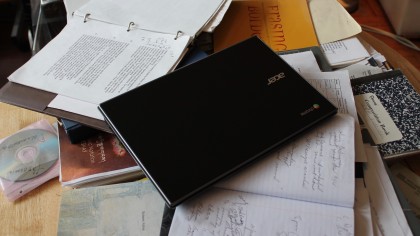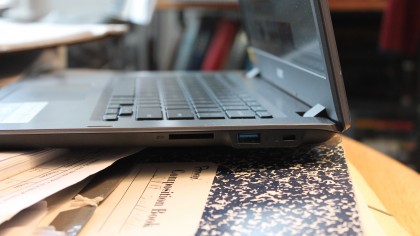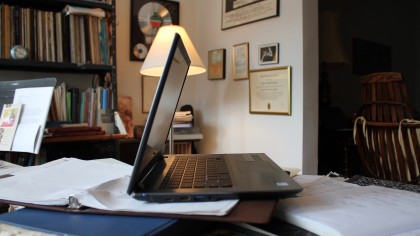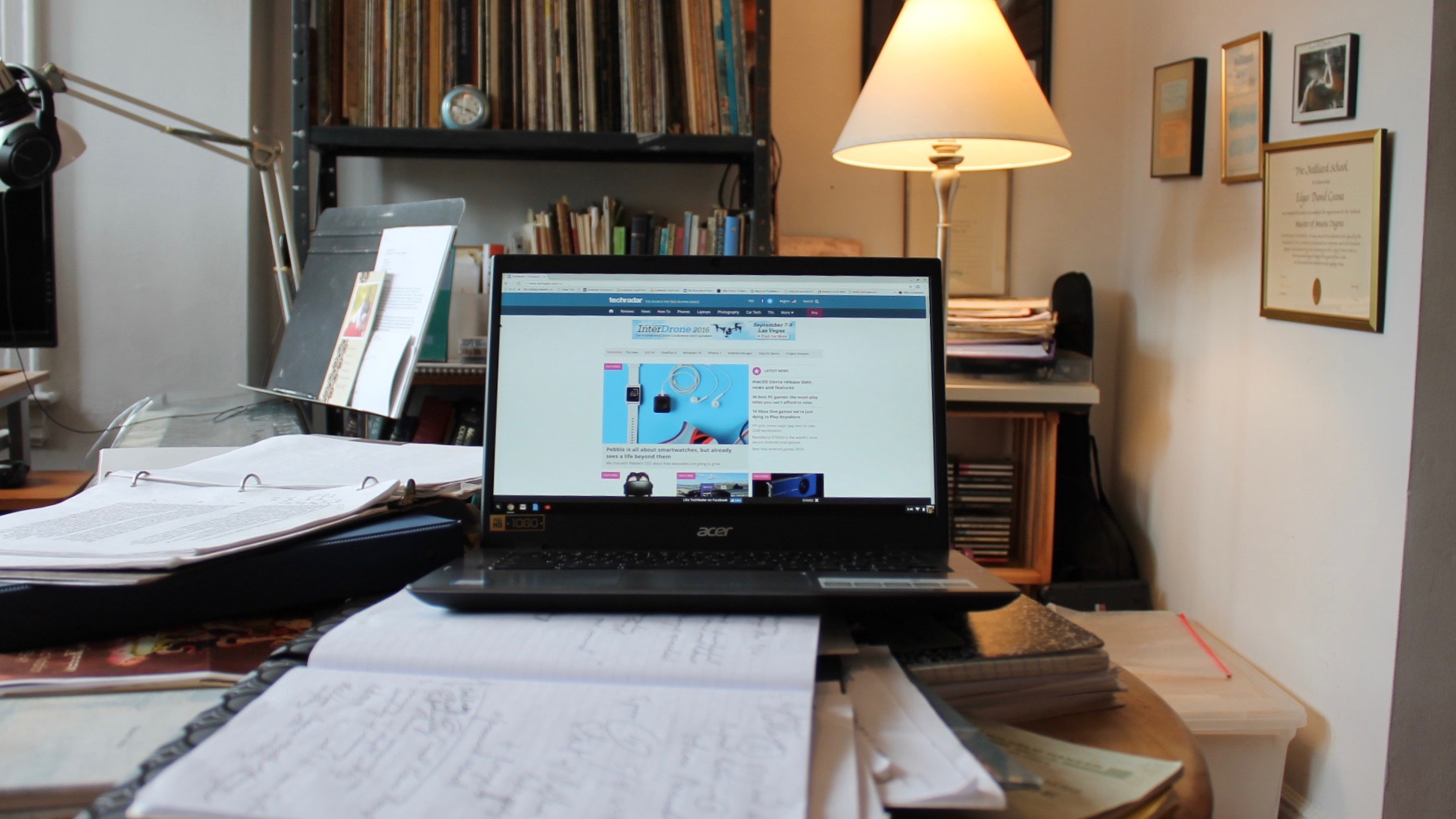Why you can trust TechRadar
The 14 for Work may be a $750 (about £571, AU$1,004) Chromebook, but its relatively top-notch hardware provides an excellent return on investment.
The hardware specs of the rival Dell Chromebook 13 are not even close to the 14 for Work's. Dell provides half as much RAM and storage, a smaller screen, a significantly slower Celeron processor and no USB-C port. Granted, it is $135 cheaper and Dell offers Core i5-powered models, but the value to power ratio is in the 14 for Work's favor.

The Chromebook Pixel's kit, on the other hand, is very similar to that of the 14 for Work. Both have Core i5 processors (though the Pixel's is a 5th gen Haswell chip), as well as 8GB of RAM and 32GB of storage.
The Pixel, however, has an additional USB-C port as well as an incredibly crisp 2,560 x 1,700 touchscreen display. Those extra features are the reason for its $999 price tag, which is overpriced for this class of laptop no matter the specs. In a head-to-head matchup, the Acer's enterprise Chromebook once again comes out on top with a superior value to power ratio.
And if you're looking for more of a bargain out of the Acer Chromebook 14, it starts at $349 (about £263, AU$458) with an Intel Celeron 3885U processor, HD (1,366 x 768) display, 4GB RAM and 16GB storage.

Spec Sheet
Here is the Acer Chromebook 14 for Work's configuration sent to techradar for review:
- CPU: 2.3GHz Intel Core i5-6200U (dual-core, 3MB Intel Smart Cache, up to 2.8GHz with Intel Burst Technology)
- Graphics: Intel HD Graphics 520
- RAM: 8GB LPDDR3 SDRAM
- Screen: 14-inch, 1,920 x 1,080 Matte Full HD Widescreen IPS LED-backlit display
- Storage: 32GB eMMC
- Ports: USB 3.1 Type-C, 2 x USB 3.0, HDMI with HDCP support, SD Card Reader, headphone/mic combo jack
- Connectivity: 802.11 ac WiFi featuring 2x2 MIMO Technology (Dual-Band 2.4GHz and 5GHz), Bluetooth 4.2
- Camera: 1,280 x 720 HD webcam with 88 degree wide angle lens supporting High Dynamic Range
- Weight: 3.2 pounds
- Size: 13.03 x 8.94 x 0.88 inches (W x D x H)
The Acer Chromebook 14 for Work has an excellent selection of ports: two USB 3.0's, an HDMI port, an SD Card Reader and, of course, the USB-C. Only the Pixel and the forthcoming HP Chromebook 13 have two USB-C's to rival the Acer's port options.
Sign up to the TechRadar Pro newsletter to get all the top news, opinion, features and guidance your business needs to succeed!
A minor nitpick: the 14 for Work's power cord plugs into the USB-C port. There is no separate, dedicated power jack. Want to use the USB-C port? You'll have to unplug the laptop first.

Benchmarks
Here's how the Acer Chromebook 14 for Work performed in our suite of Chromebook benchmark tests:
- Octane: 28,343
- Mozilla Kraken: 1,081.0ms
- Battery Life (techradar movie test): 9 hours and 36 minutes
As our benchmarks show, the 14 for Work's hardware delivers. Websites and apps load very quickly, even when multiple tabs are open and background media is playing. Frankly, Acer's Chromebook is one of the zippiest laptops I've used.
The 14 for Work's benchmark results blow away the Dell Chromebook 13. Acer's Chromebook scores 100% better than its Dell rival on both the Octane and Kraken tests – and that alone is worth the $135 premium.
Against the Pixel, it's no surprise the 14 for Work holds its own on our anecdotal web and app usage tests – the two have nearly identical hardware profiles. Both are brisk web surfers, and only the $1,300 "Ludicrous Speed" Pixel – which features a Core i7 processor and double the RAM – surfs faster.
But in terms of battery life, the Dell Chromebook 13 beats all comers. Its battery lasts an incredible 14 hours and 30 minutes. The 14 for Work may lag behind at 9 hours and 36 minutes of battery life, but it's still better than the Pixel's last place 8 hours and 22 minutes of unplugged run-time.
Current page: Specifications, Performance and Features
Prev Page Introduction and design Next Page Verdict